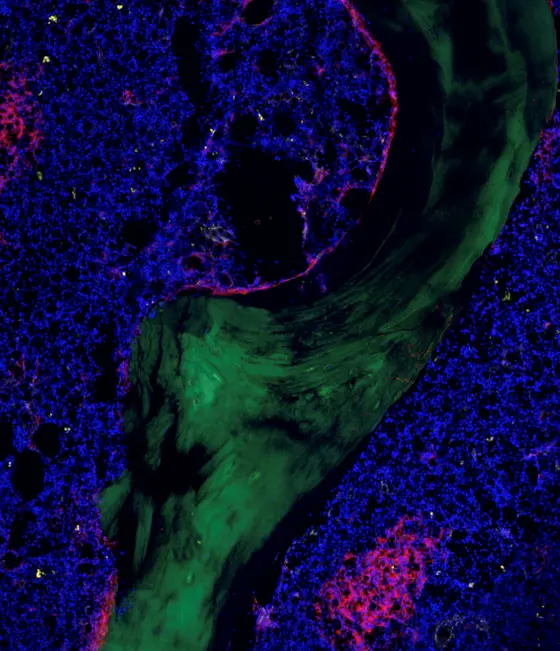Leukaemia stem cells are considered to be the starting point of leukaemia; their elimination is a basic prerequisite for a successful long-term therapy. Scientists at Heidelberg University Hospital (UKHD), the Heidelberg Institute for Stem Cell Technology and Experimental Medicine (HI-STEM), the German Cancer Research Center (DKFZ) and the European Molecular Biology Laboratory (EMBL) have now obtained research funding of €2.45 million from the German Federal Ministry of Education and Research (BMBF) as part of the junior research alliance LeukoSyStem. The aim of their project is to investigate the cells that are the origin of acute myeloid leukaemia (AML) and thus “get to the root of the problem“. The scientists intend to use isolated single cells from patient samples to investigate characteristic markers, mutations, functional data, and metabolic pathways, to gain a better understanding of leukaemia stem cells and their environment in the bone marrow. The collected data will be evaluated comprehensively with the help of computer algorithms specially developed for the purpose.
Leukaemia stem cells as the origin of a disease that is often fatal
The development of normal, healthy blood cells starts from haematopoietic stem cells in the bone marrow and proceeds through various stages of so-called precursor cells. In each of these stages, the accumulation of mutations can lead to cell degeneration and the development of blood cancer (leukaemia).
Acute myeloid leukaemia (AML) is the most common form of leukaemia in adults. In AML, mutated, functionless blood cells – known as blasts – overgrow other bone marrow cells. Every year in Europe, three to five out of every 100 000 people receive a diagnosis of AML. Despite therapeutic options such as chemotherapy and stem cell transplantation, relapses are frequent and the five-year survival rate for patients up to the age of 60 is 35–40%. For patients above 60, it is only 5–10%.
Fighting leukaemia cells, sparing healthy cells
The researchers are particularly interested in being able to better distinguish between healthy and leukaemia stem cells, as this is only possible to a limited extent using existing markers. Only when this can be done more precisely can new biomarkers for the discovery of the mutated cells be identified, opening up possible new points of attack for targeted therapies.
The funding of the junior research alliance LeukoSyStem by the German Federal Ministry of Education and Research (BMBF) enables the young scientists from Heidelberg to carry out interdisciplinary research in systems medicine. The project started at the beginning of 2020. The total funding amounts to approximately €2.45 million over five years, with a share of approximately €1.3 million for the Department of Haematology, Oncology and Rheumatology at UKHD.
LINKS
https://www.klinikum.uni-heidelberg.de/zentrum-fuer-innere-medizin-medizin-klinik/innere-medizin-v-haematologie-onkologie-und-rheumatologie
http://www.hi-stem.de/
www.embl.de
https://www.sys-med.de/de/juniorverbuende/leukosystem/



